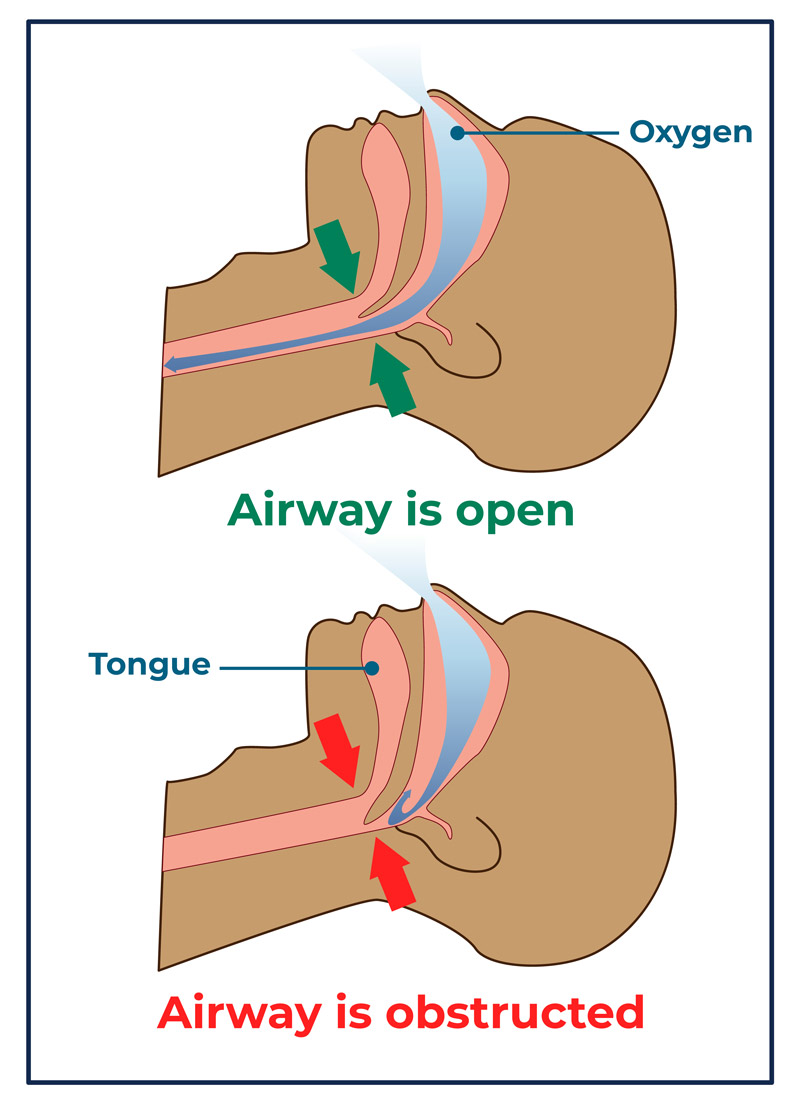 Apnea is a Greek word meaning "without breath" (source: sleepapnea.org). Sleep apnea is a condition where someone stops breathing in their sleep. It can last from a few seconds to over a minute each time, and one of its most common symptoms is loud snoring. But you're not the only one who has it — it affects more than 18 million Americans! (source: National Sleep Foundation)
Apnea is a Greek word meaning "without breath" (source: sleepapnea.org). Sleep apnea is a condition where someone stops breathing in their sleep. It can last from a few seconds to over a minute each time, and one of its most common symptoms is loud snoring. But you're not the only one who has it — it affects more than 18 million Americans! (source: National Sleep Foundation)
At Green Mountain Dental Sleep Center, we treat patients who have obstructive sleep apnea. Apnea occurs when your throat muscles intermittently relax and block your airway during sleep. A complete obstruction of the airway can result in a physical inability to breathe for a few seconds. A partial obstruction of the airway results in shallow breathing for 10 seconds or longer resulting in decreased airflow and oxygenation of the blood.
If you have sleep apnea, you know it affects more than just your sleep. Many of our patients report struggling with excessive daytime sleepiness, lasting fatigue, and frequent headaches as a result of never being able to catch up on rest. When you're tired, it affects everything: it's hard to get up in the morning, work seems exhausting, and relationships with family and friends can suffer. Not only are nights uncomfortable, but daytime tasks can seem insurmountable. You feel like you're always playing catch up, and never quite get there. And family might not understand because to them, it seems like you are getting plenty of sleep.
Do you find yourself tired throughout the day, despite getting enough hours of sleep? Perhaps it's the quality of your sleep that's to blame. When we are asleep, we aren't aware of our breathing — even when we stop breathing! Sleep apnea can go undiagnosed for years before it's brought to our own attention.
Does snoring mean there's something wrong?
Snoring doesn't automatically mean something is wrong — but it shouldn't go unchecked. For many patients, loud or excessive snoring is often their first clue that they have a sleep disorder. In fact, oftentimes it is a spouse or partner who first notices it.
Both men and women snore, as do both older people and younger people. Snoring doesn't happen because you did anything wrong or because there's something wrong with you. Snoring is simply a sign that you may be struggling to breathe effectively while you sleep, potentially affecting the level of oxygen in your blood.
CPAP
If you've been diagnosed with sleep apnea, your doctor might have recommended treatment with CPAP, or a Continuous Positive Air Pressure device. This is the gold standard treatment for sleep apnea, and can be very effective for some individuals. However, the downsides are clear: these machines can be big, bulky & often loud. Not exactly what you're looking for when you want to get a good night's sleep. CPAP can be 100% effective but patient compliance is often an issue. Some of our patients have tried CPAP and became intolerant to it due to claustrophobia, air leakage around the mask, and difficulty moving around, just a few examples. They come to us looking for a different treatment option.
Oral Appliance Therapy
Oral appliance therapy is another great option for those seeking treatment for obstructive sleep apnea. It's a small, discrete, and comfortable device appliance that stabilizes your lower jaw to help open the airway. And, oral appliance therapy is gaining traction among medical professionals as an additional option when it comes to treating sleep apnea.
Read here to learn more about this amazing technology that can improve your sleep and your overall health.
Ready to get started? Request a consultation!

Questions?
Have questions? Wondering if you're a good candidate
for oral appliance therapy? We're here to help!
